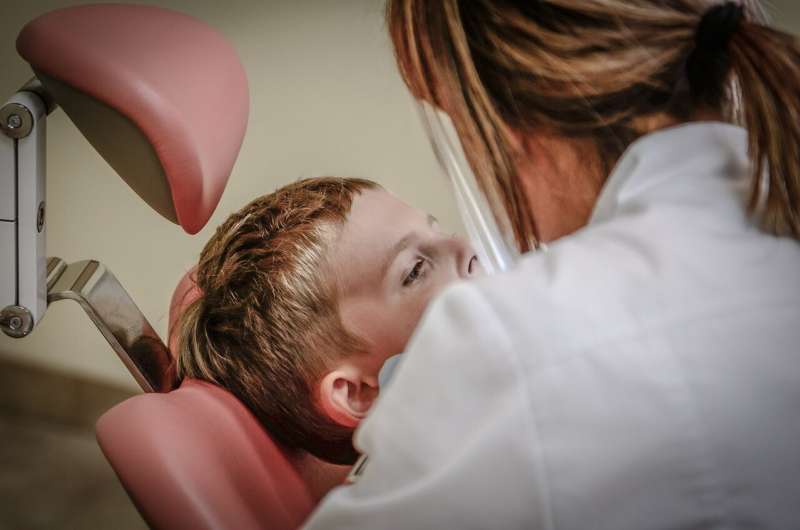This article has been reviewed according to Science X's editorial process and policies. Editors have highlighted the following attributes while ensuring the content's credibility:
fact-checked
peer-reviewed publication
trusted source
proofread
Study finds that laser epilation reduces risk of recurrence of pilonidal disease

Laser epilation, commonly known as laser hair removal, reduced the risk of recurrence in patients with pilonidal disease, an inflammatory, painful, and sometimes chronic or recurring condition, according to research conducted by Peter C. Minneci, M.D., Chair of Surgery at Nemours Children's Health, Delaware Valley, and published in JAMA Surgery.
Pilonidal disease occurs when cysts form between the buttocks. It is believed to be an inflammatory reaction to hair or debris that gets caught in the crease of the buttocks. The disease occurs in 26 to 100 per 100,000 people and is most common in adolescents and young adults. Risk factors for the condition include a sedentary lifestyle and obesity.
Pilonidal disease recurs about 33% of the time, with 80% of recurrences taking place within a year of initial treatment. These recurrences contribute to a high degree of psychosocial stress in patients, who often miss school or sports and may avoid social activities, Minneci explained. Pilonidal cysts may become infected, in which case patients must take antibiotics or undergo surgery.
Standard treatment for pilonidal disease involves removal of hair with razors or creams, as well as recommendations such as keeping the area clean. In recent years, some practitioners have begun using laser epilation as an additional strategy to prevent recurrence by providing more durable hair removal.
Laser hair removal is an FDA-approved treatment that can be administered by a physician, nurse or any professional who has received training. Appointments typically take less than an hour, with 5 to 10 minutes of laser exposure following preparation of the skin.
In this study, Minneci and colleagues sought to assess the effectiveness of laser epilation in preventing recurrence within one year of the initial treatment.
Researchers enrolled 302 patients between the ages of 11 and 21 who had been treated for pilonidal disease at Nationwide Children's Hospital from 2017 to 2022. Half of the participants were assigned to receive laser epilation plus standard treatment, and half were assigned to receive standard treatment alone.
After one year, 10.4% of the patients who had received laser epilation plus standard treatment had experienced a recurrence, compared with 33.6% of patients in the group who had received standard treatment alone. There were no significant differences between the two groups in terms of complications, disability days, health care satisfaction or perceived stigma.
"These results provide further evidence that laser epilation is safe, well-tolerated and should be available as an initial treatment option or adjunct treatment modality for all eligible patients," Minneci said.
Currently, most insurers do not cover laser epilation, and a course of treatment could cost $800 to $1,500. While some patients pay out of pocket and receive the treatment in hair removal salons, Minneci said he hopes this confirmation of the effectiveness of the procedure could help justify insurance coverage.
"In teenage patients dealing with a sensitive area of the body, there is some discomfort and embarrassment. Receiving this treatment in a medical setting, where professionals are sensitive to their experience, would be beneficial," he said. "If this procedure is covered by insurance, it will become widely available, allowing for more equitable treatment of all patients with pilonidal disease."
Minneci said future research will examine barriers to access and efficacy in specific patient subgroups.
More information: Peter C. Minneci et al, Laser Epilation as an Adjunct to Standard Care in Reducing Pilonidal Disease Recurrence in Adolescents and Young Adults, JAMA Surgery (2023). DOI: 10.1001/jamasurg.2023.5526





















